If you were to visit San Juan, it is still devastating to witness the extent to which Hurricane Maria ravaged the island 18 months ago. Some areas did not have power and communications for months after the storm. Over a year and half later, Puerto Ricans in remote areas still live in darkness. Their days are governed by sunlight. Access to cell phones and internet are still limited, infrequent, and unreliable. Nevertheless, these Americans continue to rebuild. “Espíritu puertorriqueño” means one that is strong, resilient and ever joyful. It’s a phrase that centers around familia, music that you feel in your soul, and the loudest laughter you have ever heard. For Puerto Ricans, it’s phrases like these that portray the resilience, passion and deep culture of the community. These phrases don’t have an English translation, but it is the only way to verbally express the true spirit of Puerto Ricans. If you were to close your eyes, you may not even know the damage it’s seen--you may not even know it’s still recovering.
Maintaining a strong spirit is commonplace for marginalized communities all around. But as the United States government and the Trump Administration continuously threatened to defund and abandon Puerto Rico during what should have been critical recovery time, no one knows this better than than Puerto Rico--a small, but mighty U.S. territory. Hurricane Michael, documented as the third-most pressure intense hurricane from the Atlantic Ocean and the fourth-strongest landfalling hurricane in terms of wind speed in history to devastate the U.S. mainland, hit the Florida panhandle in October of 2018. The Edison Electric Institute reported over 1.2 million electricity customers were without power in several east coast and southern states. The estimated damage from Michael throughout the U.S. mainland reached $25 billion.
Our president signed an emergency declaration in Florida and Georgia. He authorized the Federal Emergency Management Agency (FEMA) to coordinate disaster efforts, funding for 75% of the cost of emergency protective measures, and removal of storm debris. Residents received grants for house repairs, temporary shelter, loans for uninsured property losses, and business loans. Four months post Hurricane Michael, filings have reported that Gulf Power workers and outside crews have replaced 7,000 poles, 200 miles of line and 4,000 transformers. Although there is still a significant amount of recovery from the hurricane that hit in October of last year, the amount of relief and resources that were provided for Michael were exorbitant compared to Maria. The federal government’s response to Hurricane Maria was inadequate and still unacceptable.
Small glimpses of innovation beam through the crippling devastation, loss, and dehumanization. While the media (and the country) have all but forgotten about Puerto Rico, the island’s residents continue to develop solutions to fit their communities’ needs. For instance, when the power grid was unreliable and showed little promise for future improvement, residents of the island and members of the Puerto Rican diaspora banded together to find effective resolutions. Resilient Power Puerto Rico (RPPR) was launched by a group of friends from New York City with close ties to the island after the landfall of Hurricane Maria, with an immediate goal of bringing power to the most impacted communities through the deployment of solar energy systems.
Following Hurricane Maria, RPPR has identified underserved communities and then partnered to deploy small to medium active solar energy systems. These systems seek to improve energy resilience by fostering the development of renewable energy micro-grids to reduce exposure to risk through independence from the centralized fossil fueled power grid, strengthen adaptive capacity through local control of resources to rebuild and recover, decrease sensitivity by providing the power redundancies necessary for continued operation of social infrastructure.
Another innovative solution born out of the devastation of Hurricane Maria is the Puerto Rico Land Grid by Loveland Technologies. In the moments leading up to and immediately after a natural disaster, evacuation plans and population movement pattern data can be powerful survival tools. That is why Loveland, a software and data company that specializes in mapping the world's property information at the parcel level, partnered with the US Census Bureau to create a comprehensive guide to land use in Puerto Rico. The affordable and accessible platform puts the power of land data in the user’s hand and encourages the use of property shapes, ownership, zoning, land use, architecture, nature, taxes, infrastructure, and other characteristics for data-driven, local solutions.
Too often natural disaster ravaged islands like Puerto Rico are depicted as helpless, impoverished people who need charity and volunteers. Even worse, too often, people forget that Puerto Rico is part of the United States. Puerto Ricans have been U.S. citizens since 1917 and it is time that they are treated with the dignity and protections that accompany citizenship.
One Member of Congress, Representative Raúl Grijalva of Arizona, is committed to doing just that. This week, Congressman Grijalva is leading a delegation to San Juan, Puerto Rico to host a Congressional Listening Session. During this session, residents of Puerto Rico will have the opportunity to voice their concerns and experiences in recovery since Hurricane Maria hit the island in September of 2017. Congressman Grijalva’s efforts represent an ongoing effort to keep the recovery of Puerto Rico at the forefront of conversations in Washington, DC.
Although Puerto Rico is still very much in recovery-mode and in need of additional resources to do so, the espíritu puertorriqueño is anything but lacking. Even bruised, battered, and disconnected, the “island of enchantment” pushes on to prepare for a stronger and more formidable future.
